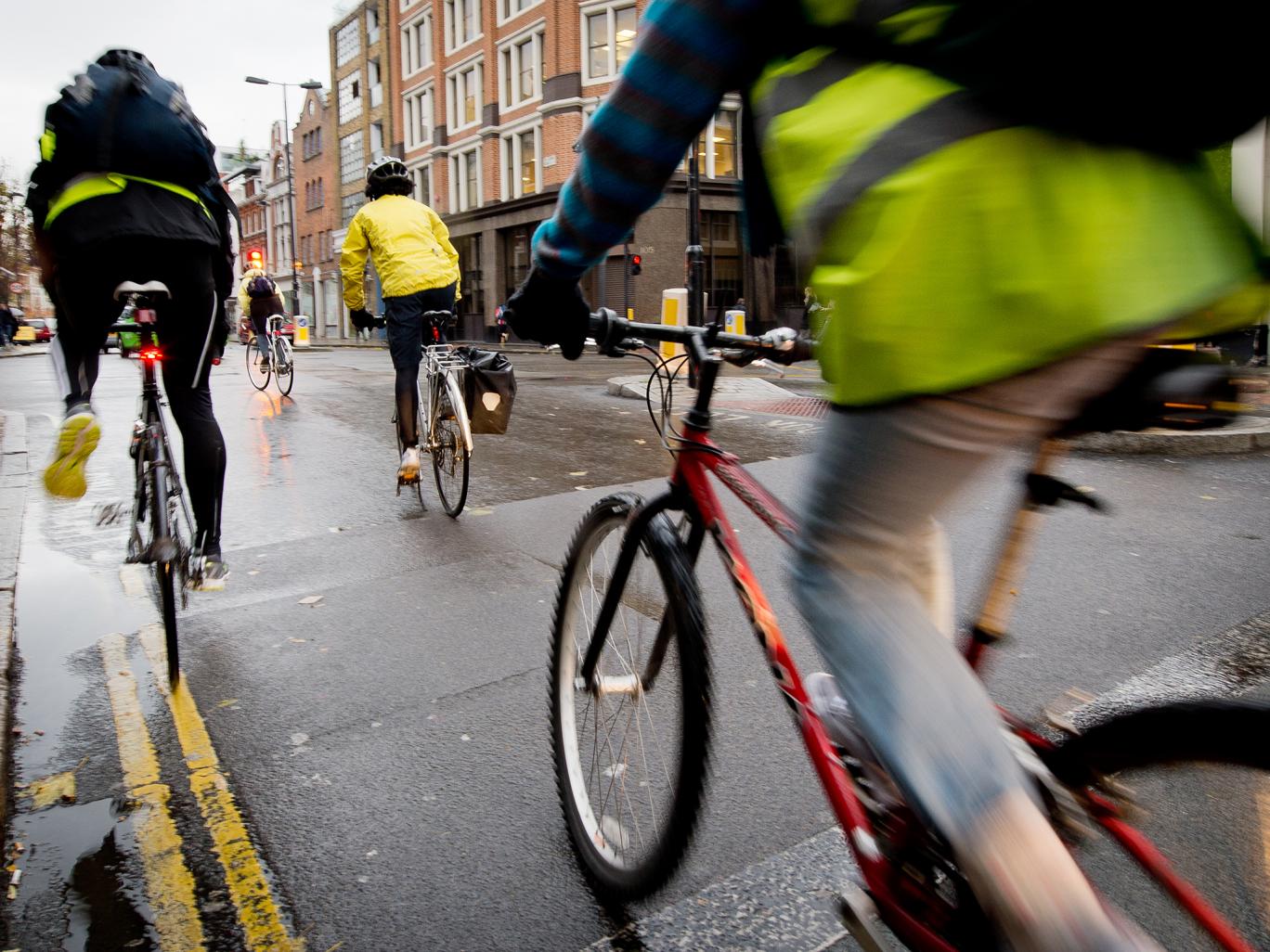Cycling to work ‘could halve risk of cancer and heart disease’
'There’s an urgent need to improve road conditions for cyclists,' says cycling charity

Your support helps us to tell the story
From reproductive rights to climate change to Big Tech, The Independent is on the ground when the story is developing. Whether it's investigating the financials of Elon Musk's pro-Trump PAC or producing our latest documentary, 'The A Word', which shines a light on the American women fighting for reproductive rights, we know how important it is to parse out the facts from the messaging.
At such a critical moment in US history, we need reporters on the ground. Your donation allows us to keep sending journalists to speak to both sides of the story.
The Independent is trusted by Americans across the entire political spectrum. And unlike many other quality news outlets, we choose not to lock Americans out of our reporting and analysis with paywalls. We believe quality journalism should be available to everyone, paid for by those who can afford it.
Your support makes all the difference.Commuters who swap their car or bus pass for a bike could cut their risk of developing heart disease and cancer by almost half, new research suggests – but campaigners have warned there is still an “urgent need” to improve road conditions for cyclists.
Cycling to work is linked to a lower risk of developing cancer by 45 per cent and cardiovascular disease by 46 per cent, according to a study of a quarter of a million people.
Walking to work also brought health benefits, the University of Glasgow researchers found, but not to the same degree as cycling.
The 264,337 participants were asked how they travelled to work on a typical day. Their health was monitored for five years and the results adjusted for variables such as sex, age, existing illness, smoking and diet.
Overall, people who cycled to work were found to have a 41 per cent lower risk of premature death from any cause, compared to those who drove or took public transport.
The scientists said: “The findings, if causal, suggest population health may be improved by policies that increase active commuting, particularly cycling.”
These policies could include “the creation of cycle lanes, cycle hire or purchase schemes, and better provision for cycles on public transport,” they wrote in the British Medical Journal (BMJ).
Walking to work was associated with a 27 per cent lower risk of developing cardiovascular disease and a 36 per cent lower risk of dying from it – but did not appear to be linked to a lower risk of cancer or early death from any cause.
“Mixed” commuting, including both active and non-active modes of transport, was also associated with some health benefits, but only if the active part of the journey involved cycling.
“A shift from car to more active modes of travel will also decrease traffic in congested city centres and help reduce air pollution, with further benefits for health,” added Professor Lars Bo Andersen, from the Western Norwegian University of Applied Sciences.
In an editorial, Professor Andersen said switching to cycling or walking could save lives and reduce the cost to the NHS of cardiovascular disease, currently estimated at £15bn a year.
Jason Torrance of cycling charity Sustrans told The Independent cycling to work was “a proven way for people to improve their health, to help their local economies and to improve their productivity at work”.
“There’s an urgent need to improve road conditions for cyclists and transforming local roads and streets into places that people feel safe and want to be,” he said.
“Some cities are taking a leading role in doing that, like London and Manchester, which are doing some fantastic things. But more needs to be done.”
Experts behind the study said the lower benefits seen for walking compared to cycling could be down to several factors.
These include the fact cyclists covered longer distances in their commutes than the walkers, cycling is a higher intensity exercise and cyclists were generally more fit.
The people taking part in the research were aged 53 on average at the start of the study. Some 2,430 people died during the study period, with 496 deaths related to cardiovascular disease, which covers all diseases of the heart and circulation, and 1,126 deaths from cancer.
Overall, 3,748 people developed cancer over the five years, and 1,110 had an event related to cardiovascular disease, such as a heart attack or stroke.
Join our commenting forum
Join thought-provoking conversations, follow other Independent readers and see their replies
Comments